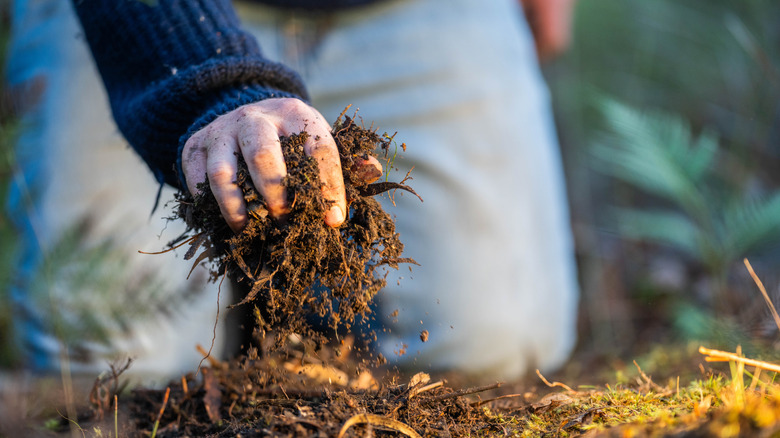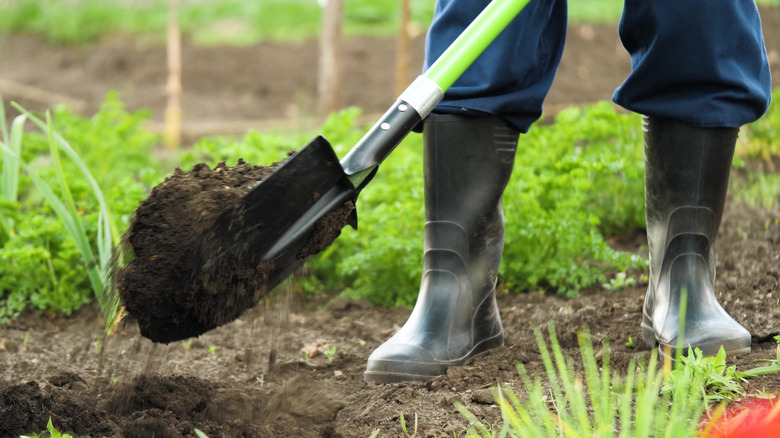Is Meat The Hack To Perfect Garden Soil? Read This Before Trying
It might seem like an unusual subject at first, but there are a couple of gardening-related questions that involve the use of meat. Perhaps the most common comes from people who are new to composting and are wondering whether meat scraps can be added to the heap. It's actually something that's not recommended, according to the US EPA (Environmental Protection Agency), and it's one of those outdoor compost bin mistakes that can attract pests to your yard.
Another question is whether meat, and in particular things like offal and fish heads, can be added directly to the soil. There are those who argue that these can help create the perfect garden soil by adding nitrogen and phosphorus (two of the three key nutrients that are essential for plant growth), plus trace minerals. It is also claimed that adding meat products increases the variety of microbes and how active they are, thus improving the fertility of the soil.
Healthy soil should have a diverse range of micro-organisms, but what's being suggested is effectively dumping raw meat and fish waste straight into your garden. For all the good it might do, there are some drawbacks. So let's talk about those in more detail and look at possible solutions.
Why the meat hack might not be worth it for your garden soil
The meat you add to the soil might harbor pathogens: disease-carrying bacteria like E. coli that can cause serious illnesses. If the composting process works thoroughly, heat will kill any dangerous bacteria, so the hack is safest in late spring or summer when the ground is warm. Be warned, though, if the meat doesn't properly decompose, you risk contaminating your soil and any plants growing in it. Additionally, if the meat isn't buried properly, it will attract pests and scavengers. Dig a trench at least a foot deep, introduce the meat, then fill and cover with straw or bark chips to deter unwanted visitors.
While some food prep or table scraps can be used to fertilize your garden, you're unlikely to produce the quantity of meat required to make this soil hack effective. You'll need a similar amount of meat to the amount of compost or manure you would add to a new vegetable bed. The best sources to find this level of meat waste are probably independent butchers who deal with whole carcasses and fishmongers or fish markets. You'll need large, sealed buckets to transport the waste and prevent bugs from getting to it, and you'll have to work quickly.
While the meat hack can be beneficial, it certainly carries risks. Similar results can be achieved by adding things like blood meal, bone meal, and fish meal, which are safe and easy to use. Add knowing how to make DIY compost and learning how to attract worms, and you could have the perfect garden soil with a lot less hassle.

